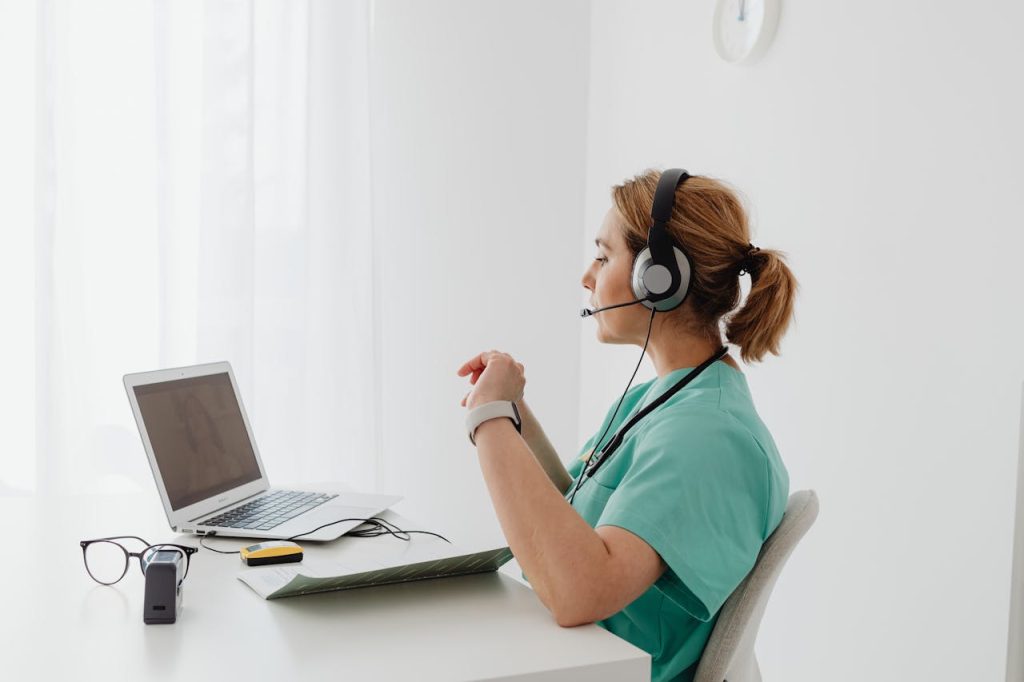Telehealth therapy has revolutionized how people access mental health care, especially in bustling cities like Miami. With rising rates of anxiety, depression, and PTSD, many individuals are seeking treatment that is both accessible and effective. Virtual therapy offers a convenient, secure, and clinically supported way to get help without leaving home. The real question is: does it work?
The answer is yes for thousands of individuals across Miami and throughout Florida. Telehealth therapy has become a lifeline for those struggling with emotional distress and trauma. Let’s explore how this model of care supports people facing anxiety, depression, and PTSD and why it may be the right step for you or your loved one.
Understanding Anxiety, Depression, and PTSD
These three mental health conditions are among the most common and widely misunderstood. They affect people from all walks of life and often co-occur, making diagnosis and treatment more complex. Still, individuals can learn to manage symptoms and regain control over their lives with the right support.
Anxiety often shows up as constant worry, racing thoughts, or a sense of dread. Physical symptoms may include rapid heartbeat, insomnia, nausea, or muscle tension. Some people experience full-blown panic attacks or obsessive thoughts that make daily life feel overwhelming.
Depression may involve persistent sadness, a lack of motivation, feelings of worthlessness, or disinterest in things once enjoyed. It can cause disruptions in sleep, appetite, concentration, and self-esteem.
Post-Traumatic Stress Disorder (PTSD) is triggered by exposure to trauma. Symptoms include flashbacks, nightmares, heightened emotional reactivity, and avoidance of reminders. It can significantly affect relationships, safety, and trust in oneself or others.
Whether these symptoms come on suddenly or build over time, untreated mental health issues can interfere with school, work, parenting, and personal fulfillment. That’s where telehealth steps in.

How Does Telehealth Therapy Work?
Telehealth therapy involves meeting with licensed therapists, counselors, or psychiatrists through secure video conferencing platforms. Sessions mirror traditional therapy in structure and content but allow the client to participate from a location of their choice.
Most Miami-based providers use HIPAA-compliant software to protect privacy. Clients can complete intake forms online, attend therapy sessions by phone or video, and sometimes participate in digital journaling or skill-building exercises between appointments.
Telehealth care is available for both individual and group sessions and often includes psychiatric medication management, case coordination, and ongoing assessments.
Effectiveness of Telehealth for Anxiety, Depression, and PTSD
Research consistently shows that telehealth therapy is just as effective as in-person therapy for many mental health conditions, including anxiety, depression, and PTSD. Here’s how it supports each:
Telehealth for Anxiety and Depression
Virtual therapy provides a familiar environment, which may reduce stress for anxious clients. It also makes it easier to attend frequent sessions, increasing treatment engagement. Cognitive Behavioral Therapy (CBT), mindfulness techniques, and coping skill development are all adaptable to virtual settings.
Telehealth for Depression
Commuting to an office can feel impossible for people struggling with low energy, motivation, or self-worth. Telehealth eliminates that barrier and allows individuals to receive support when needed. It also reduces the likelihood of missed sessions, which is vital in managing depressive symptoms.
Telehealth Services for PTSD
Many trauma survivors prefer virtual therapy because it allows them to remain in a space that feels safe. Trauma-informed care delivered via telehealth includes EMDR, narrative therapy, and somatic techniques that help clients process trauma at their own pace. Privacy and control over the session environment are invaluable for clients recovering from abuse, violence, or other intense experiences.
Telehealth Therapy in Miami
Miami’s diverse population benefits from telehealth’s ability to match clients with bilingual or culturally competent therapists. This model ensures that individuals can receive care in English or Spanish, without the added burden of travel. It also addresses clients’ needs who may be caregivers, professionals with tight schedules, or living with physical limitations.
Who Is a Good Fit for Telehealth Therapy?
Telehealth is not ideal for everyone. However, many individuals thrive in a virtual therapy setting. This includes:
- People experiencing mild to moderate symptoms of anxiety, depression, or PTSD
- Clients who have access to a private space and a stable internet connection
- Individuals transitioning from inpatient, PHP, or IOP programs
- Busy professionals, students, or parents needing flexible scheduling
- People in remote or transportation-limited areas
What to Expect from a Telehealth Therapy Session
The process typically begins with an online consultation or intake session. The therapist will gather information about your symptoms, goals, and background during this appointment.
Once care begins, you’ll meet regularly via secure video calls. Sessions may include talk therapy, worksheets, mindfulness exercises, or discussions about relationships, behavior, and thought patterns. Your therapist may also provide homework, like journaling or thought tracking.
Telehealth sessions are usually 45 to 60 minutes long. Like in-person therapy, success depends on consistency, honesty, and a commitment to the therapeutic process.
Improving Lives Now’s Anxiety and Depression Support in Miami
Improving Lives Now is a trusted mental health provider in Miami that offers both in-person and telehealth services for anxiety and depression. Their licensed, bilingual clinicians support clients through evidence-based approaches designed to meet individual emotional, social, and behavioral needs.
Their services include:
- Individual therapy for anxiety and depression using CBT, trauma-informed therapy, and mindfulness
- Group therapy sessions, including free online support groups for Spanish-speaking individuals
- Family therapy and case coordination when needed
- Psychiatric referrals and medication management support
- Therapy available in both English and Spanish
Improving Lives Now’s telehealth model allows clients anywhere in Florida to access compassionate, high-quality care. Whether you need private one-on-one sessions or the community connection of group therapy, their team is equipped to support you.

Benefits of Choosing Telehealth in Miami
- Greater access to bilingual clinicians
- Flexible scheduling, including evening and weekend options
- Privacy and discretion
- Reduced transportation barriers
- Continuity of care during travel or life disruptions
- Ideal for people with mobility issues or chronic illness
Start Healing with Compassionate Telehealth Therapy
Your Path to Relief Can Begin from Home
If you or someone you care about is struggling with anxiety, depression, or PTSD, there is help, and it’s closer than you think. Telehealth therapy makes it possible to receive high-quality care from the comfort and safety of your own space.
At Improving Lives Now, licensed therapists provide compassionate support tailored to your emotional and cultural needs. Whether you prefer individual therapy or the connection of group sessions, they are ready to guide you toward relief and recovery.
7171 SW 62nd Ave. Ste 300, Miami, FL 33143
Email: in**@***************ow.com
Opening Hours: Mon – Fri 9:00 am – 7:00 pm
Phone: (305) 280-1440
Call today or request your appointment online to begin therapy for anxiety, depression, or PTSD. Healing is possible, and it starts here.
Frequently Asked Questions
- Is telehealth therapy covered by insurance?
Yes. Most providers, including Improving Lives Now, accept Medicaid, Medicare, and commercial insurance for virtual therapy. - What if I don’t feel comfortable talking on camera?
Some therapists offer phone sessions or allow clients to begin without video. Comfort and progress are prioritized. - How long does telehealth therapy usually last?
Most sessions are 45 to 60 minutes. The length of treatment depends on your goals and progress. - Can I do group therapy through telehealth?
Yes. Group therapy is available online and includes structured support and community connection. - What if I need medication too?
Your therapist can coordinate with psychiatric providers for evaluation and medication management.
